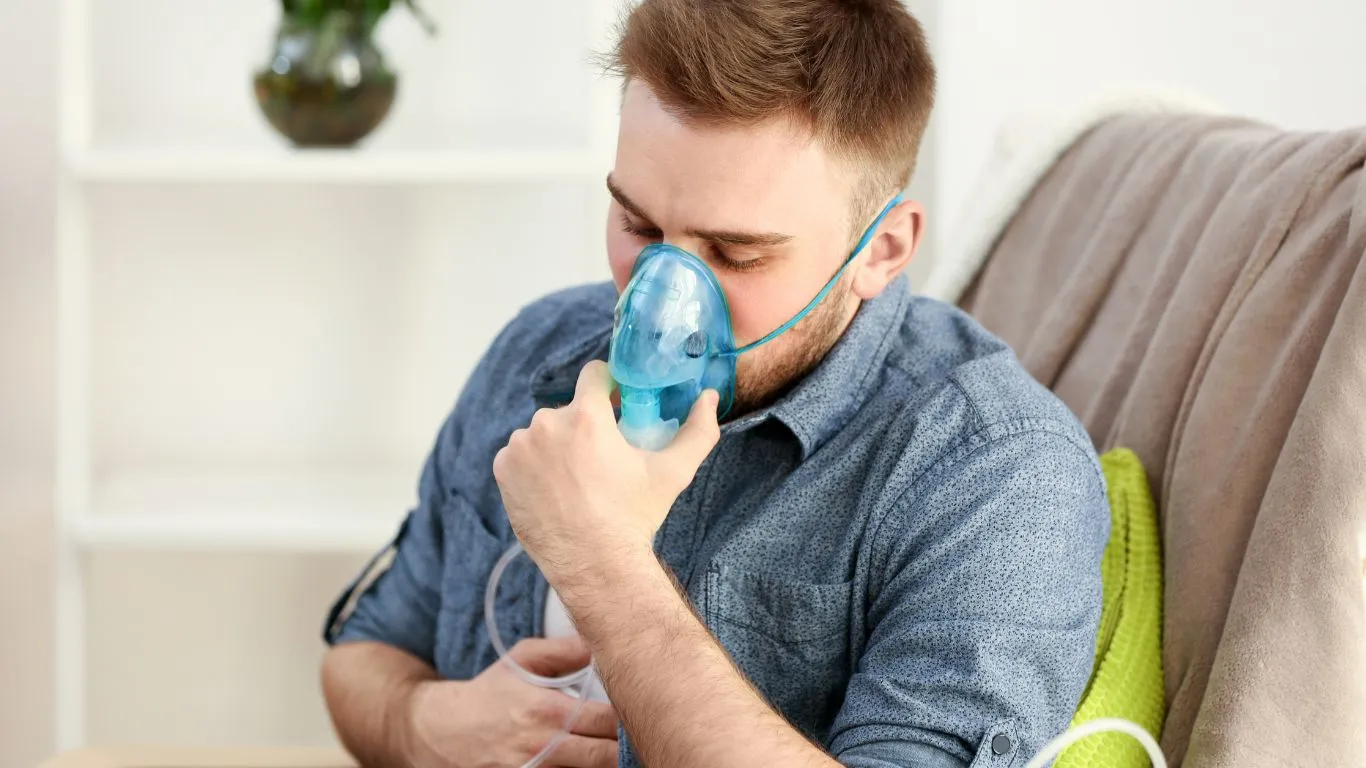Can Asthma Cause Dizziness After Mild Exercise? Key Insights to Know
As a Pulmonary Nurse with years of hands-on experience, I’ve seen countless patients struggling with asthma and its various symptoms. One question I get asked time and time again is, “Can asthma cause dizziness after mild exercise?” It’s an understandable concern, especially for individuals who are just starting to manage their asthma symptoms and want to stay active. Exercise is an important part of maintaining good health, but when you’re living with asthma, it can be a bit more complicated. Let’s dive into this common issue and explore the relationship between asthma, dizziness, and exercise.
Understanding Asthma and Its Impact on the Body
Before we dig into the specific question of dizziness after exercise, let’s start with a basic understanding of what asthma is and how it affects the body. Asthma is a chronic respiratory condition where the airways in the lungs become inflamed and narrowed. This inflammation can cause a variety of symptoms, including wheezing, shortness of breath, chest tightness, and coughing. These symptoms can be triggered by a number of factors, such as allergens, cold air, smoke, or even exercise.
For those with asthma, exercise can sometimes be a double-edged sword. On one hand, physical activity is essential for cardiovascular health, muscle strength, and overall well-being. On the other hand, it can trigger asthma symptoms or even an asthma attack if not managed properly. This is particularly true for individuals with exercise-induced bronchoconstriction (EIB), a condition where the airways constrict during or after physical exertion, leading to difficulty breathing.

Can Asthma Cause Dizziness After Mild Exercise?
Now, to answer the burning question: Can asthma cause dizziness after mild exercise? The short answer is yes, it can. However, the reasons behind this dizziness may vary, and it’s important to understand the different factors that could contribute to this sensation.
One of the primary reasons for dizziness in people with asthma after mild exercise is the reduced oxygen levels in the body during or after physical activity. When you exercise, your muscles require more oxygen to function. If you’re not able to get enough oxygen due to constricted airways, your body might struggle to keep up, leading to feelings of dizziness or lightheadedness.
The Role of Breathing and Oxygen Levels
During exercise, the body demands increased oxygen to fuel muscle activity. If you have asthma, the airways in your lungs may already be inflamed or narrowed, making it more difficult to get enough air into your system. This can lead to hypoxemia, a condition where oxygen levels in the blood drop below normal. When this happens, dizziness can occur, particularly after physical exertion. It’s a natural response when your body isn’t receiving the oxygen it needs.

Exercise-Induced Asthma (EIA) and Dizziness
Another key factor to consider is Exercise-Induced Asthma (EIA), which is a specific type of asthma triggered by physical activity. People with EIA often experience symptoms like wheezing, coughing, shortness of breath, and chest tightness shortly after starting or completing exercise. The airways constrict as a result of the physical strain, making it harder to breathe, and this reduction in airflow can cause dizziness.
In many cases, people with EIA may not even realize their asthma is triggering these symptoms. This is because EIA doesn’t always cause the typical asthma signs like wheezing or coughing. Instead, it can cause a sudden onset of dizziness or lightheadedness, especially if the exercise was more strenuous than expected. Even something as simple as a brisk walk or light jog can set off these symptoms for some individuals.
Other Contributing Factors to Dizziness After Exercise
It’s important to remember that dizziness after mild exercise isn’t always directly related to asthma. There are several other factors that could contribute to the feeling of dizziness. For example:
- Dehydration: Physical activity increases your body’s need for water. If you’re not hydrating properly before or during exercise, dehydration can lead to dizziness and even fainting.
- Low blood sugar: If you haven’t eaten properly before your workout, your blood sugar levels may drop, causing lightheadedness or dizziness.
- Overexertion: Even mild exercise can cause dizziness if you push yourself too hard without adequate conditioning or if you’re not accustomed to regular physical activity.
These factors can all contribute to dizziness and may not necessarily be related to asthma. If you experience dizziness after exercise, it’s a good idea to consider these potential triggers as well.
Managing Asthma to Prevent Dizziness During Exercise
So, how can you manage asthma to reduce the chances of dizziness after mild exercise? The key is proper asthma management and preparation. Here are some tips to help minimize the risk of experiencing dizziness:
- Use your inhaler as prescribed: If you have a rescue inhaler, make sure to use it before starting any exercise, especially if you’re prone to EIA. This can help open up your airways and improve your oxygen intake during physical activity.
- Warm up and cool down: Warming up before exercise and cooling down afterward can help your body gradually adjust to physical exertion, reducing the risk of triggering asthma symptoms.
- Stay hydrated: Make sure to drink plenty of water before, during, and after exercise to prevent dehydration.
- Monitor your intensity: Avoid pushing yourself too hard, especially during the initial stages of exercise. Start slow and gradually build up your stamina.

Recognizing the Signs of Asthma-Related Dizziness
If you’re living with asthma and have experienced dizziness after mild exercise, it’s important to be able to recognize the signs and symptoms that indicate your asthma may be at play. Often, dizziness isn’t just a random occurrence—it can be tied directly to your asthma or the way your body is responding to physical activity.
From my experience working with asthma patients, I can tell you that one of the biggest challenges is distinguishing between dizziness caused by asthma versus dizziness caused by something else, like dehydration or low blood sugar. Both can feel similar, but the underlying causes are different. Here are some signs that might suggest your dizziness is related to asthma:
- Shortness of breath: If you feel winded or are struggling to catch your breath during or after exercise, this could be a sign your asthma is flaring up.
- Wheezing or coughing: Asthma can cause wheezing, coughing, or a feeling of tightness in your chest, especially during or after physical exertion.
- Increased mucus production: Some asthma sufferers experience more mucus or phlegm after physical activity, which can further restrict the airways and contribute to dizziness.
- Fatigue: If you’re feeling more tired than usual, even after light exercise, it could be because your body is working harder to compensate for restricted airflow.
It’s always best to err on the side of caution and consult a healthcare provider if you’re unsure whether your dizziness is asthma-related. It’s better to address any potential issues before they become serious, especially if you have a history of asthma-related complications.

Preventing Dizziness with Proper Asthma Management
The good news is that you can take steps to minimize the likelihood of dizziness after exercise by properly managing your asthma. As someone who has helped a wide variety of asthma patients, I can confidently say that a proactive approach is key. Here are some tips I always recommend to patients who are concerned about dizziness during or after exercise:
1. Pre-Exercise Medication
If you have asthma, your doctor may have prescribed a bronchodilator or a rescue inhaler to use before physical activity. These medications work by opening up the airways, making it easier to breathe during exercise. Using these medications as directed can help prevent your airways from narrowing, thus reducing the chances of dizziness.
Personally, I’ve seen many patients who find relief by using their inhalers about 15 minutes before exercise. It helps their airways stay clear during the workout and minimizes asthma symptoms like dizziness, wheezing, or shortness of breath.
2. Choose the Right Type of Exercise
While some forms of exercise may trigger asthma symptoms more than others, the right type of exercise can actually be beneficial for people with asthma. Low-impact exercises like swimming, walking, or cycling tend to be easier on the lungs and less likely to induce asthma symptoms.
On the other hand, high-intensity exercises, such as running or intense cardio, can cause your airways to constrict more easily, which might lead to dizziness. I’ve worked with patients who have found that exercising in a humid environment, like a swimming pool, helps prevent asthma flare-ups, as the moisture in the air makes breathing easier.

3. Gradual Warm-Up and Cool Down
When exercising with asthma, it’s important to gradually ease into your workout. Skipping warm-ups or jumping straight into intense exercise can cause your airways to constrict more rapidly, leading to asthma symptoms like dizziness. Starting with a gentle warm-up will give your lungs time to adjust to the physical activity, reducing the risk of a sudden flare-up.
Similarly, don’t forget to cool down afterward. Allowing your body to gradually slow down can prevent the sudden drop in heart rate and blood pressure that could contribute to dizziness.
4. Maintain Hydration and Balanced Nutrition
One often overlooked factor when it comes to dizziness after exercise is hydration. As I’ve seen in my practice, dehydration can exacerbate asthma symptoms and lead to dizziness, especially if you’re not drinking enough water before, during, or after your workout. Asthma medications, like inhalers, can also lead to dehydration, so it’s important to stay ahead of your hydration needs.
Another area to keep in mind is nutrition. Your body needs fuel to exercise, and if you haven’t eaten properly, your blood sugar may drop, leading to dizziness. A balanced snack with both carbohydrates and protein before your workout can help maintain your energy levels and prevent low blood sugar, which can contribute to dizziness.

When to Seek Medical Attention for Dizziness
Although dizziness can sometimes be managed with proper asthma care, there are instances when it’s important to seek medical attention. If you experience dizziness during or after exercise, it’s crucial to listen to your body and know when to reach out to a healthcare professional.
- Persistent dizziness: If you continue feeling dizzy for an extended period, even after resting or using your inhaler, it could be a sign of something more serious. Don’t wait too long to get medical advice.
- Chest pain or tightness: If your dizziness is accompanied by chest pain, tightness, or severe shortness of breath, this could indicate a more severe asthma attack or another underlying issue. It’s vital to seek immediate medical help in this case.
- Frequent episodes of dizziness: If you notice that dizziness becomes a frequent occurrence after exercise, it could signal that your asthma is not being properly managed. A doctor may need to adjust your treatment plan to better suit your needs.
By staying vigilant and being proactive about your asthma management, you can reduce the chances of dizziness interfering with your exercise routine. But if any of these red flags arise, don’t hesitate to contact your healthcare provider for further evaluation and guidance. Remember, asthma is manageable, but it’s crucial to stay ahead of any potential issues before they affect your well-being.
How to Incorporate Exercise Safely with Asthma
If you’re living with asthma and want to continue exercising, there’s good news: you can still stay active without sacrificing your health. As a Pulmonary Nurse, I’ve worked with countless patients who thought exercise was off-limits due to their asthma, only to find out that with the right precautions, they could stay fit and enjoy the benefits of physical activity. It all comes down to how you approach it and how well you manage your asthma symptoms before, during, and after exercise.
One of the most important aspects of managing asthma while staying active is creating a sustainable workout plan that fits your body’s needs and respects its limitations. It’s about finding a balance between pushing yourself to improve and knowing when to take it easy. Here are some strategies that I’ve found to be incredibly helpful for people with asthma:
Start Slow and Build Gradually
Starting slow is a key component of any successful asthma management plan. As tempting as it may be to jump into a rigorous workout routine, it’s important to ease your body into the process. Begin with low-intensity activities like walking, yoga, or cycling at a relaxed pace. These exercises help to gradually build stamina without putting too much strain on your airways.
In my experience, patients who gradually increase their exercise intensity over time tend to have better control over their asthma symptoms. If you start with a manageable routine and slowly ramp up your workout intensity, you give your body the time it needs to adapt, reducing the risk of asthma flare-ups or dizziness.

Use Breathing Techniques During Exercise
Breathing techniques can play a huge role in reducing the risk of asthma symptoms during exercise. One technique I often recommend is diaphragmatic breathing, which focuses on engaging the diaphragm rather than shallow chest breathing. This deep breathing method helps increase airflow to the lungs and can reduce feelings of breathlessness, tightness, or dizziness during exercise.
Another effective technique is pursed-lip breathing, which involves breathing in through your nose and then exhaling slowly through pursed lips. This method helps to slow down your breathing rate and keep your airways open longer, ensuring that you’re getting enough oxygen to avoid dizziness or other asthma-related symptoms.
Monitor Your Environment
Environmental factors can also have a big impact on your asthma symptoms. As much as possible, try to exercise in environments where allergens, pollutants, and cold air are minimal. For example, indoor exercise facilities with filtered air can be much more asthma-friendly than outdoor running in areas with high pollen counts or pollution levels.
Even the time of day can affect your asthma symptoms. For many asthma patients, mornings or evenings may be the best times to exercise, as air quality tends to be better and allergens are less likely to be in the air. Pay attention to how your body reacts in different environments, and adjust your exercise schedule accordingly.

References and Resources for Asthma and Exercise
For additional guidance on managing asthma during physical activity, there are a number of trusted resources that can help. Websites such as the Centers for Disease Control and Prevention (CDC) offer helpful tips on how to manage asthma while staying active, and they also provide detailed information on how to recognize asthma triggers and symptoms.
Another valuable resource is the American Lung Association, which has a comprehensive guide on asthma management, including a section specifically dedicated to exercise-induced asthma. These resources can give you additional tools to help prevent dizziness and other asthma symptoms during your workouts.
Disclaimer
While I’ve shared tips based on my personal experience and professional expertise, it’s important to note that asthma can vary from person to person. The recommendations provided here should not replace personalized medical advice. Always consult your healthcare provider or asthma specialist to create a plan that best suits your individual needs and to discuss any concerns you may have about exercising with asthma.
Each person’s asthma triggers, response to medication, and fitness levels are unique. Your doctor can help you determine the most appropriate exercise plan, monitor your progress, and ensure that your asthma is well-controlled as you engage in physical activity.
Remember, managing asthma effectively means understanding your body, recognizing your limits, and taking proactive steps to minimize risks. By following the right strategies and staying in tune with your symptoms, you can exercise safely and continue to lead an active, healthy life.

Bianca Nala is a compassionate Nurse Practitioner with a strong background in primary and respiratory care. As a health writer for Healthusias.com, she combines her clinical expertise with a talent for clear, relatable storytelling to help readers better understand their health. Bianca focuses on topics like asthma, COPD, chronic cough, and overall lung health, aiming to simplify complex medical topics without losing accuracy. Whether she’s treating patients or writing articles, Bianca is driven by a single goal: making quality healthcare knowledge accessible to everyone.







